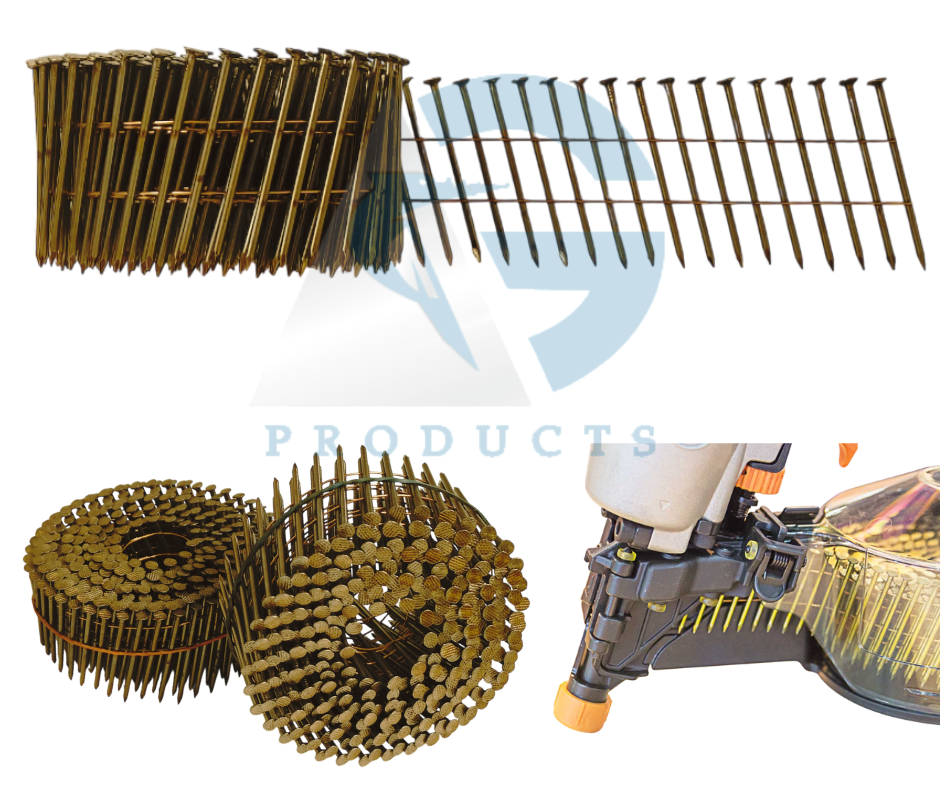What Nail Quality Really Means: Decoding Bending, Finish & Strength in Coil Nails

Introduction
When it comes to coil nails, many buyers make decisions based on price or availability. But if you’re relying on these fasteners for automated production lines, furniture manufacturing, or pallet assembly, the true measure of value goes far beyond the surface. In this post, we decode the hidden quality indicators of coil nails: bending resistance, finish integrity, and tensile strength. Understanding these can make the difference between smooth production and costly downtime.
- Bending Resistance: Why It Matters More Than You Think
Not all nails are created equal. Bending resistance refers to how well a coil nail retains its shape during and after driving. If a nail bends prematurely:
- It can jam nail guns.
- It may fail to penetrate hardwoods.
- It causes inconsistent fastening, affecting product integrity.
Pro Tip: Look for nails tested under industrial-grade pressure and penetration tests. Harder wires (e.g., 1018 or 1022 carbon steel) typically perform better. Industry directories like ThomasNet list manufacturers that meet these standards, helping you source reliable products.
- Finish Quality: More Than Just Looks
A nail’s finish isn’t just about appearance — it plays a role in corrosion resistance, tool longevity, and even safety. Poor finishes can cause:
- Rust within weeks, especially in humid or coastal environments.
- Increased friction, leading to faster tool wear.
- Surface damage to finished products (splinters or scratches).
Types of Finishes to Know:
- Bright Finish – economical, but not rust-resistant.
- Electro-Galvanized (EG) – basic rust protection.
- Hot-Dip Galvanized (HDG) – superior for outdoor or marine use.
- Vinyl Coated – improves drivability and grip inside wood.
For deeper insights on corrosion protection, check out woodworking experts at Fine Woodworking and construction-focused publications like the Journal of Light Construction.
To learn more about the financial impact of fastener quality, industry discussions on platforms like Quora and Reddit woodworking forums provide real-world examples and expert advice.
- Tensile Strength: The Hidden Hero
Tensile strength defines how much pulling force a nail can withstand before breaking. In high-load environments like crate manufacturing or structural framing, using low-strength nails can lead to structural failure.
Indicators of High Tensile Quality:
- Conforms to ASTM standards.
- Specified PSI or MPa strength ratings.
- Verified by third-party material test reports (MTRs).
For reliable sourcing of high-strength nails, platforms like IndustryNet and GlobalSpec can help identify certified suppliers.
Why This Matters to You
Choosing poor-quality nails might save a few rupees per box, but the hidden costs include:
- Nail gun downtime.
- Increased maintenance.
- Product rejections due to weak fastening.
- Injuries or liability risks in extreme cases.
Conclusion
At A&G Products, we believe that quality isn’t a luxury — it’s essential. Our coil nails are manufactured with premium-grade wire, precision finishing, and rigorous quality checks to ensure every nail drives performance.
Want to experience the difference? Contact us for samples or bulk pricing.
